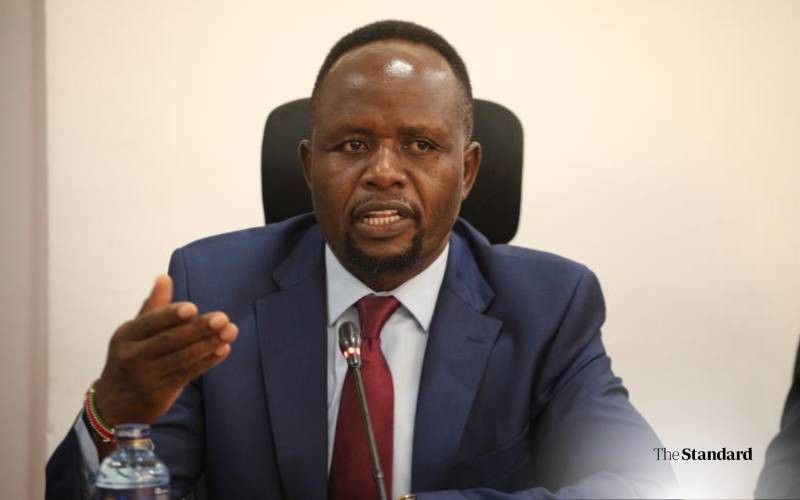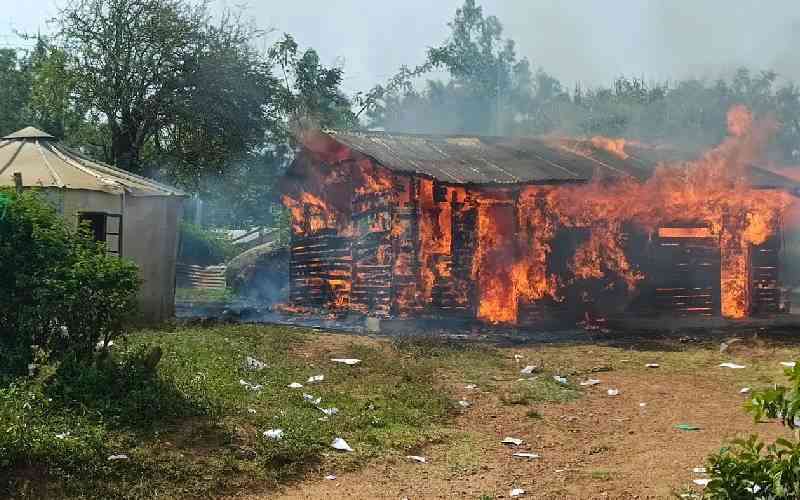
Trans Nzoia Governor George Natembeya. [Elvis Ogina, Standard]
Governor George Natembeya has called for a coordinated effort in rural healthcare to address maternal mortality.
He emphasised the need for collaboration among health actors to improve reproductive healthcare in rural areas and reduce maternal injuries and deaths.
Natembeya noted that health services, particularly reproductive healthcare, can be costly.
He stressed the importance of combined strategies to tackle maternal mortality.
While speaking at Wamalwa Kijana Teaching and Referral Hospital (KMRTH) during the donation of medical equipment worth Sh3.5 million by USAID through AMPATH, the governor pointed out that inadequate budgets have hindered efficiency in the health sector.




He expressed concern that cuts in aid from the U.S. administration will negatively impact health services in the country.
Natembeya challenged development partners in the health sector to adopt a coordinated approach to address the financial gaps created by these aid reductions.
Sylvester Kimaiyo, Director of AMPATH Uzima, presented the equipment intended to enhance reproductive healthcare in the county.
Natembeya praised AMPATH Uzima for their support, stating that it will significantly help address the challenges of maternal mortality in the area.
Prof. Kimaiyo also announced plans to transform KMRTH into a centre of excellence for integrated reproductive healthcare and HIV/AIDS services.
"We appreciate the support we are receiving from the Trans-Nzoia county government in delivering our services, and we aim to make KMRTH an integrated centre to facilitate our programs, including those for HIV/AIDS," said Kimaiyo.
The county faces several challenges related to reproductive health, including low reporting rates, a rise in teenage pregnancies, high poverty levels, and frequent staff turnover.
Experts have warned that cutting funding for global health programs increases the risk of infectious disease outbreaks that could affect everyone.
Without prevention and treatment efforts, diseases are more likely to spread unchecked, mutate, and become harder to control.
Stay informed. Subscribe to our newsletter
This creates a higher risk of future global health crises that could threaten lives worldwide. Investing in global health is not only a humanitarian concern; it is essential for protecting public health everywhere.